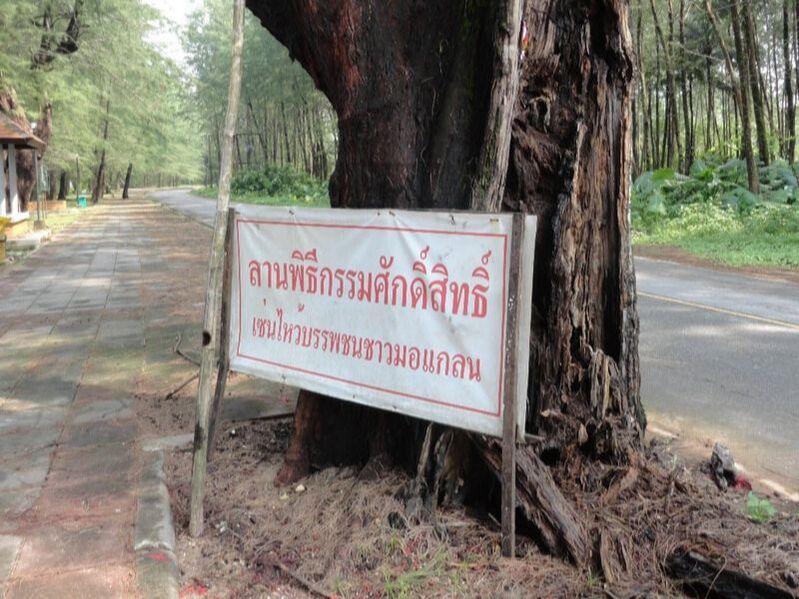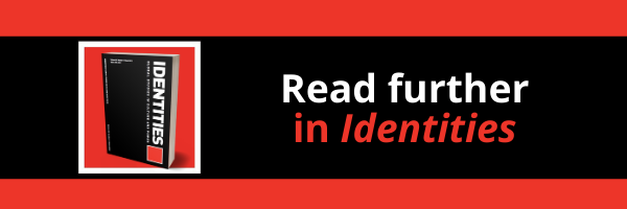|
|
|
Our identities reflect our relationships with places and spaces. The changing contexts of these relationships also impact, shift and mould our identities. In our Identities article, ‘Hybrid identities: juxtaposing multiple identities against the ‘authentic’ Moken,’ we explore Moken[i] communities living in coastal areas of Thailand, and the Indian Ocean tsunami of 2004. We also spotlight ascriptions of Moken identities as vulnerable, overwhelmingly linked to the sea and with limited opportunities for agency over their livelihoods.
In challenging these ascriptions through our ethnographic research, we found myriad examples of agency with various beliefs, settlement patterns and usage of the sea. The communities we spoke to explained shifting identities, across and between physical spaces of settlement, but also among traditional practices and aspirations for younger generations. That our identities shift and flux is a position made overwhelmingly clear during the past year when the spread of COVID-19 has significantly changed our capacity to relate to different places and spaces. Our experiences of this past year have been contingent on national contexts and structural inequalities, as well as long-held assumptions about certain cultural identities.
Since the onset of the pandemic, discourses spuriously linking certain pandemic outcomes and experiences to specific national groups, and to their cultural traditions and tropes, have manifest in mainstream media. Lupton’s assertion that ‘racism is frequently part of social responses to disease outbreaks’, while apt, is probably of little comfort to the multitudes of Chinese and Asian migrants subjected to racism and hostility based on their country of birth and their visible difference in non-Asian nations.
As the pandemic continues to spread in some nations, new examples of COVID-19-related racialisation link people to place in ‘more-than-viral’ geographies. For example, the Australian government’s decision to criminalise citizens returning from India – a ‘high risk’ COVID-19 country (as of April 2021) – juxtaposes sharply with the ‘different standards of treatment given to citizens and residents’ returning in 2020 from the United States, United Kingdom and Europe. These decisions raised critical issues of the racialisation of different Australian identities based on their spatialities and visible differences. The semantics of language ascribed to these different identities are hazardous, with return to Australia deemed illegal or criminal to some identities, but not others. As Massey argued, ‘The language we use has effects in moulding identities and characterizing social relationships. It is crucial to the formation of the ideological scaffolding of the hegemonic common sense. Discourse matters’. How we assign and (re)produce identity discourses through language in the media and in public spaces, and especially when some identities are tagged with terms illegality and criminality, serves to perpetuate processes of non-White Othering in Australia by positioning ‘white similarity as safe and preferable against [the threat from] ethnic difference’. Some identity shifts are potentially more hazardous when spatialised to certain places. Other shifts perpetuate existing stereotypes. Recent media reports have highlighted how decreased tourist numbers in the coastal areas where Moken communities reside has been beneficial for the Moken. Media reports have stated that ‘the authorities are less strict when the Chao Lay[ii] sail in protected marine reserves or near islets usually reserved for tourists’, resulting in increased opportunities to collect sea life as ‘space has opened for these seafarers to return to the water’. These articles and their counterparts replay popularised and more traditional ascriptions of Moken identities. They neglect to report more vital conversations about ongoing struggles of land rights or access to traditional lands, or indeed how the Moken are navigating issues of access to information and medicines to prevent COVID-19. [i] As in our Identities article, here we have chosen to use the term ‘Moken’ to collectively encompass the three Indigenous communities, Moken, Moklen and Urak Lawoi, we researched in the Phang Nga province of Thailand. [ii] Chao lay may be interpreted as a generic and somewhat derogatory term, like ‘sea gypsy’.
Image credit: Author’s own. (Translation in caption courtesy of Jaruwan Kaewmahanin Enright).
Blog post by Danielle Drozdzewski, Stockholm University, Sweden and Daniel Robinson, University of New South Wales, Australia
Read the Identities article: Robinson, Daniel F. & Drozdzewski, Danielle. Hybrid identities: juxtaposing multiple identities against the ‘authentic’ Moken. Identities: Global Studies in Culture and Power. DOI: 10.1080/1070289X.2015.1070730
Explore other relevant Identities articles:
Integrating by means of art? Expressions of cultural hybridisations in the city of Antwerp Civic, ethnic, hybrid and atomised identities in Central and Eastern Europe Study on the cultural identity of the Chinese-Indians in Kolkata, Sihui and Toronto
0 Comments
Your comment will be posted after it is approved.
Leave a Reply. |
|
Explore Identities at tandfonline.com/GIDE |
|
The views and opinions expressed on The Identities Blog are solely those of the original blog post authors, and not of the journal, Taylor & Francis Group or the University of Glasgow.


